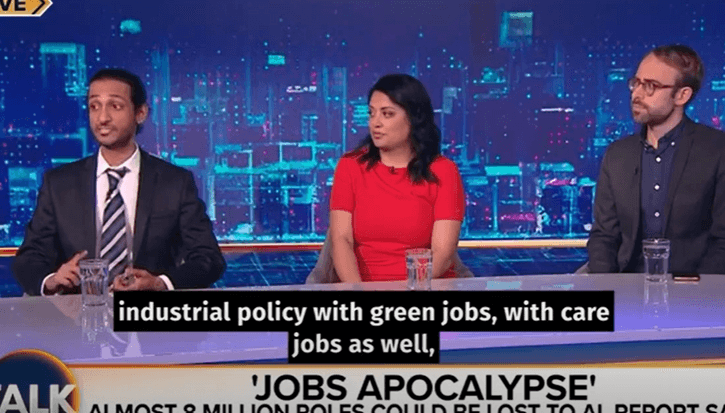A necessary solution to a broken market
A necessary solution to a broken marketArticle
This year energy prices among the Big Six have reached their highest level since 2013 and are on average £76 higher than last year. In a perfect market full of well-informed consumers who are hyper-sensitive to price changes, you might expect these price increases to motivate switching to a better deal.
To some extent, that is true. Switching rates last year were at their highest since 2010, with around 7.7 million consumers finding new gas or electricity deals. Further, since the beginning of 2013, the market share of the Big Six has fallen from over 98 per cent of both the electricity and gas markets to just over 80 per cent.
So markets work and consumers will keep switching until the Big Six either die out or radically adapt their business models? Not quite, because this is far from a perfect market.
Firstly, as data from Ofgem shows, a lot of this switching activity is internally within a customer’s current supplier, not to other, very often cheaper, ones. Secondly, there are still a huge number of consumers who either do not understand, lack confidence or feel it is too much hassle to switch energy supplier. As more informed consumers do switch away, this large demographic of less engaged consumers pay more to cover the costs.
Importantly, survey data from Ofgem suggests that the least engaged of these consumers, making up over 20 per cent of the market, are also much more likely to belong to lower income groups who are the least able to afford higher energy bills.
This is why the price cap, branded as Marxist when originally proposed by Ed Miliband in 2013, is now seen as necessary by government to prevent costs rising further for those least able to pay. There has already been strong opposition from the energy industry, suggesting that all suppliers will just start to charge the cap price, thereby limiting choice between them.
But criticising a lack of choice implies and pretends that everyone has equal access to information, understanding and confidence to make those choices. This is patently not true. In December 2016, Ofgem found that two thirds of consumers were still paying the most expensive standard variable tariff (SVTs). So a price cap would restrict competition, but in a market that wasn’t particularly competitive in the first place.
And this is the crux of the quandary facing the government. Limiting competition isn’t necessarily a bad thing if it can save consumers money, but it also means admitting to a failure to fix underlying problems with market transparency.
Indeed, the price cap is somewhat at odds with work Ofgem and Energy UK are currently conducting to make bills simpler for consumers. The hope is that simpler bills will engage consumers, help them to understand their energy costs, and encourage them to make informed choices if they feel they are paying too much.
The introduction of a price cap directly undermines these efforts by limiting choice and suggests the government has decided these changes are improving market transparency all too slowly. Certainly, if all SVTs were capped, as is currently being discussed, this could benefit a huge number of consumers much more immediately than gradually increasing market competition.
However, if the government were truly committed to intervening in the market, the price cap could go even further. If set at the cheapest tariff currently available, many consumers could save over £300.
Yet the current plan for the draft bill will only cap SVTs and other default tariffs. It will also not come into place until 2018 and, for the moment, only last until 2020. Many commentators also point out that while prices would be reduced for many consumers, for some they would rise as supplier offerings converge around the cap price.
Thus the cap is neither one thing nor another: it limits competition but does not save consumers as much as it could. In truth, the government does not know what it wants. In her keynote speech at the Conservative party conference last week, the prime minister reassured attendees that she still had faith in free trade and free markets in reference to Brexit, while reviving an anti-competitive cap on one of them at home.
Ultimately, the government needs to decide how much faith it still has in the competitiveness of the energy market. Currently, it is trying to take the least intervening intervention in order to preserve a semblance of competition.
Eventually, without a radical reform of market transparency, it may have to commit to a more thorough intervention. In the meantime, consumers will continue to have higher living costs than they should.
Joshua Emden is a research fellow in energy and climate change at IPPR
Related items

Forging ahead: Deciding the direction of IPPR's Migration Policy Unit
In our last blog post for the Migration Policy Unit we shared our new way of working as we endeavour to be inclusive and transparent in our policymaking process. In this blog we set out what our first and flagship project is for the policy…
Who gets a good deal? Revealing public attitudes to transport in Great Britain
Transport isn’t working. That’s the message from the British public. This is especially true if you’re on a low income, disabled or living in the countryside. The cost of living crisis has exposed the shortcomings of our transport system,…
Bhargav Srinivasa Desikan on TalkTV discussing AI
IPPR's Bhargav Srinivasa Desikan on TalkTV discussing his new report on the impact of generative AI on the UK labour market.